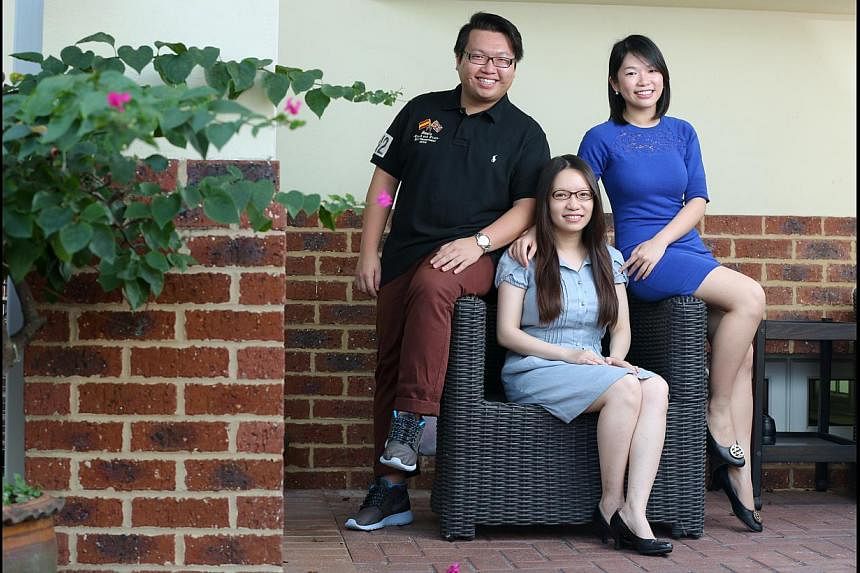Ms Rachel Leong, 24, is not the only one in her family to go overseas to study law.
Her older sister graduated from the University of Liverpool in 2005. Ms Leong finished her own degree at the same British university in 2012, and, their brother is now studying there.
They are part of a surge of locals going abroad to pursue a law degree. In Britain, the number of Singapore law students more than tripled from 350 in 2008 to 1,142 last year. The number going to Australia has also risen - from 303 in 2011 to 386 last year.
Because of this rise, returning graduates are facing far more competition - a point stressed by Law Minister K. Shanmugam recently.
He said the legal industry is not growing as fast as the number of students heading overseas to study law, which means a growing proportion may not get a job as a lawyer here.
Between 2009 and last year, 70 per cent of returning overseas graduates secured training contracts - a requirement before being called to the Bar.
"Families have become more affluent and they set aside more for their children's education," said Ms Angeline Joyce Lee, the previous president of the Singapore Corporate Counsel Association, and a lawyer for 23 years.
"And if their children do not meet the entry requirements for our local universities, they would consider overseas. Law remains a highly respectable profession that is coveted."
Starting salaries for young lawyers have also risen. Last year, top law firms were offering monthly pay packages of between $5,800 and $6,400, up from $5,200 in 2010. The average starting salary for local graduates last year was $3,200.
This has prompted many parents and students to believe that a law degree is a worthwhile investment. Overseas degrees have also become relatively more affordable in recent years, although tuition fees at British universities have been rising.
Ms Leong paid £8,700 annually but her brother is paying £10,000 (S$20,000).
But the pound has weakened, making studying in Britain cheaper. The fees, which would have cost Singaporeans about $30,000 in 2007, now cost around $20,000 due to the strengthening Singapore dollar.
Local household incomes have also increased by at least 10 per cent since 2007.
"My sister was one of three Singaporeans in her course. When I was there, it was about 10," she said, adding that the figure has risen to more than 20 in her brother's batch.
The number of foreign universities approved by the Government for the study of law has grown from 15 in 1994 to 35 now, giving students more choice.
National University of Singapore law dean Simon Chesterman believes the number of students going abroad to study law may not "continue to rise - and could fall", given that prospects are getting tougher.
"Parents may now think twice about spending money on a law degree abroad," he said. "Students have to manage their expectations, unless they have a first- class honours degree from Oxford or Cambridge."
But former Hwa Chong Institution student Lee Wei Sheng is sticking to his decision to read law overseas.
The 18-year-old, who completed his A levels last year, hopes to earn a spot at Cambridge or one of the other British universities.
"If I get a place, I will work extra hard so I can do well, especially now that I know there's so much competition and the talent pool is a lot wider," he said.


